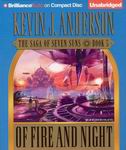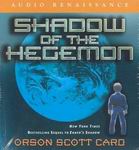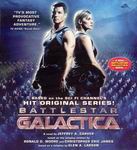
 The Forever War
The Forever War
By Joe Haldeman; Read by George Wilson
8 CDs – 9.5 hours [UNABRIDGED]
Publisher: Recorded Books
Published: 1999
ISBN: 0788739832
Themes: / Science Fiction / Hard SF / Military SF / War / Time Travel / Aliens / Love /
“Tonight we are going to show you eight silent ways to kill a man.”
The guy who said this was a sergeant who didn’t look five years older than me. So if he’d ever killed a man in combat, silently or otherwise, he’d done it as an infant.
This is Vietnam all over again but now it’s in space. In a world where dreams come true and Science Fiction has become part of the School’s National Curriculum, then Joe Haldeman’s The Forever War becomes compulsory reading material. It’s little wonder it sits at No.1 on Gollancz list of “Science Fiction Masterworks.” And rightly so. Here is a story still fit and ready for duty thirty-three years after winning the Hugo award for “Best Science Fiction Novel.”
William Mandela is a gifted and brilliant college student and so is ideal fodder for the army’s war against an unknown alien race called the Taurans. Mandela is drafted into a harsh training program that kills more recruits than it can mould into soldiers. He is educated and trained to the highest of army standards, becoming one of Earth’s elite foot soldiers in a war against the alien Taurans. He is also a reluctant soldier caught up in this futile war, a war Earth’s economy can not do without. Add to this collapsars, light speed travel, time dilation, ever changing societies and you have Science Fiction at it’s flawless.
Read by George Wilson with the skill of a seasoned veteran. His voice never invades your senses or pulls you away from the gripping tale Haldeman has delivered, and that’s crucial for an audiobook. Wilson got his start in broadcasting as a news director with American Forces Radio and Television in Thailand. He was also instrumental in forming an improvisational comedy group that performed in New York theaters and nightclubs.
The Forever War was first serialized by the science fiction magazine, Analog. Its then editor, Ben Bova, thought the middle section was just too harsh in its descriptions of war and war life, so Haldeman drafted a more mellow alternative and it’s this edition that was used in the book’s first full publication.
There are any number of occurences Haldeman has used in The Forever War from first hand knowledge. He severed in Vietnam as a combat engineer and both Haldeman and his protagonist, Mandela returned fron war to very different attitudes than the ones they left behind. Haldeman knows war, knows it up close and bloody (3 men in his 4 man unit were blown to bits in an ordinance explosion). Haldeman can also identify the boredom that inevitably comes between the battles. In combat situations his descriptions are raw. And like Mandela, every word of The Forever War had to fight to survive under Haldeman’s brutal editorship.
Everyone… here are your instructions. You are to listen to The Forever War ASAP – and that’s an ORDER!




